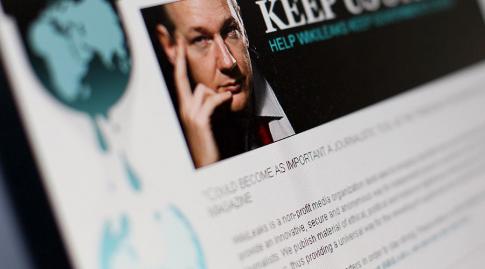The WikiLeaks Dilemma

Julian Assange was arrested in London...
SAAHIL DESAI & SHAN WANG
Julian Assange is arrested. Plus: Some 900 million voters in India head to the polls, Uber’s billion-dollar losses, what a year in outer space does to the body, and more
Julian Assange was arrested in London, after nearly seven years in the Ecuadorian Embassy. Assange, the founder of the radical-transparency group WikiLeaks, burst onto the scene in 2010 when his organization released a trove of files documenting abuses by American forces. More recently, in 2016, WikiLeaks published emails from the Democratic National Committee that had been hacked by Russian actors (WikiLeaks has been a major character in the Special Counsel’s investigation). Assange’s arrest by British authorities could pave the way for him to be extradited and prosecuted in the U.S.—but James Ball, who worked with Assange at WikiLeaks, argues that this poses serious free-speech and free-press concerns.
Some 900 million Indian voters are heading to the polls in the world’s largest election. Prime Minister Narendra Modi is seeking another term after being swept into power on a mandate to overhaul India’s economy. Five years later, that vision hasn’t exactly panned out. India has more people under the age of 25 than the entire European Union, and the country hasn’t been able to create jobs quickly enough to match the rampant population growth. (Last year, 19 million people applied for 60,000 openings in India’s railway authority.) A winner won’t be declared for a while: Voting will take five weeks. The election cycle is also rife with dangerous misinformation.
Uber publicly filed for an IPO today. Here are some numbers: Since 2016, it’s lost $10 billion (from operations), passengers paid $41.5 billion for Uber rides in 2018, and the company boasted 3.9 million drivers in the final quarter of last year. “Uber almost doesn’t feel like a business, but rather some essential service that investors believe should exist,” Alexis Madrigal writes. While Uber’s similarly money-losing competitor beat it to an IPO, Uber is the clear Goliath on most fronts, including outside the U.S.
A crescendo of anti-government protests in Sudan have led to the ouster of President Omar al-Bashir. Alan Taylor collected this photo and others of the protests roiling Khartoum, the country’s capital.
What happens to the human body in space? To research the effects, Scott Kelly spent a year in space while his identical twin brother was on Earth.
That seems to be the theme of most of the findings: Something changed, probably because Scott was in space, but it’s not clear whether that’s a good or bad thing.
Like other astronauts, Scott’s retinal nerve thickened, but whether his long-term vision will be affected is unclear. One category of bacteria in Scott’s gut increased, while another decreased; the ratio returned to normal after the mission, and the shift remains a mystery. Scott’s cognitive abilities, which improved during his mission, sharply declined after he came back, and though they rebounded, they never returned to preflight levels. Scientists suspect that the sudden return to gravity played a role, but so could have the sudden return to interacting with more than the six people he saw constantly. Part of it could even have been the fault of people like me—the deluge of journalists who wanted to talk to Scott after he landed.
Our partner site CityLab explores the cities of the future and investigates the biggest ideas and issues facing urban dwellers around the world. Jessica Lee Martin shares today’s top stories:
How are neighborhoods really changing? A new report finds that extreme gentrification is taking place in a few U.S. cities, but the dominant trend—particularly in the suburbs—is the concentration of low-income populations.
Cambridge has become the first U.S. city to mandate protected bike lanes on all streets scheduled for planned upgrades. This bikelash-proof strategy is one other cities should follow, writes Laura Bliss.
We all know the stereotypes: Suburbia is dull, conformist, and about “keeping up with the Joneses.” But what about the suburbs of utopians and renegades? The CityLab senior editor Amanda Kolson Hurley provides a peek into the secret history of radical suburbs in this excerpt from her new book.
What do books, avocados, plastic bottles, and performing 30 squats have in common? Feargus O’Sullivan reports on the weird things that can get you free rides on public transit around the world. /atlantic




 del.icio.us
del.icio.us Digg
Digg

Post your comment